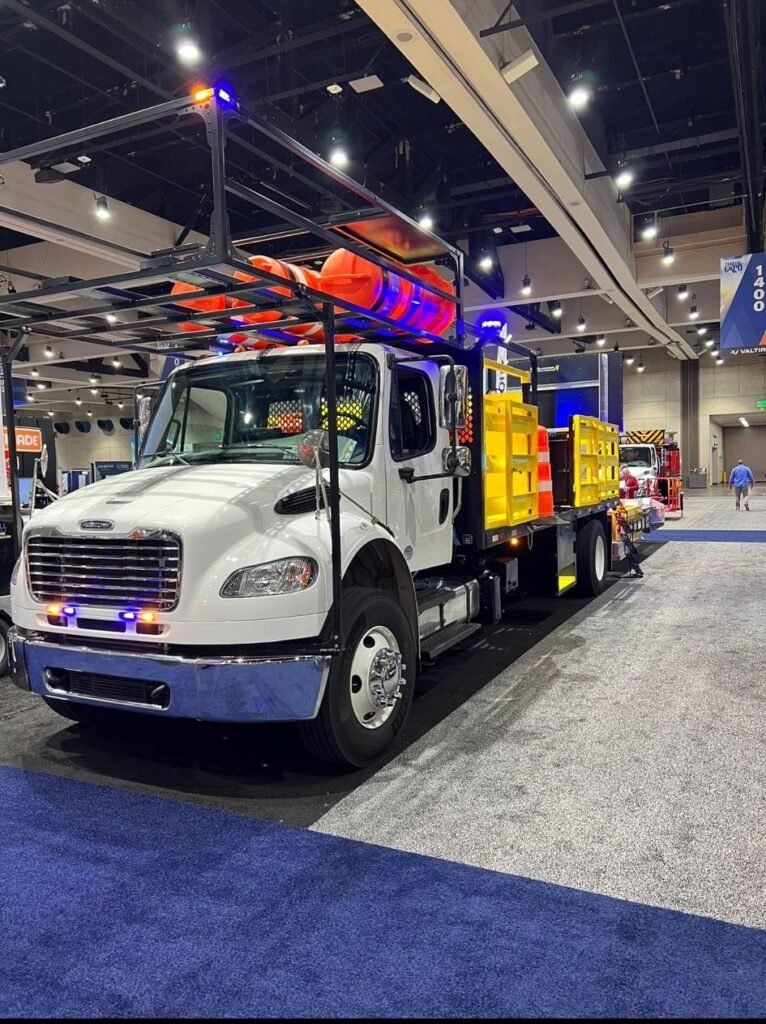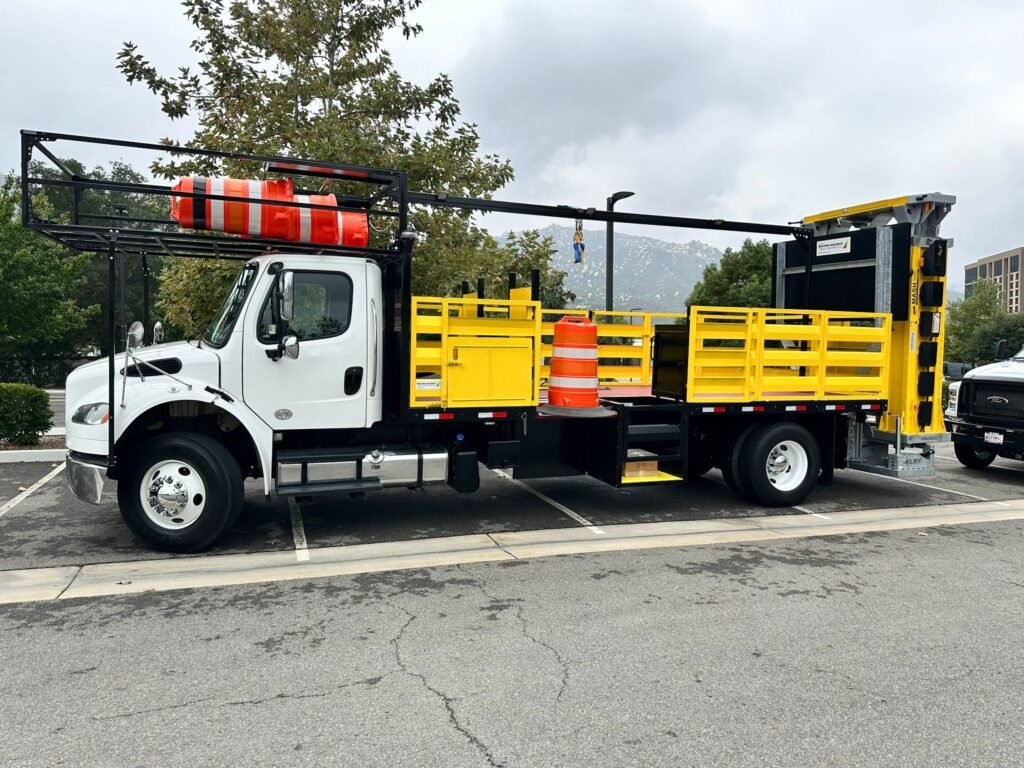In traffic safety, ensuring that your Truck-Mounted Attenuators (TMA) trucks are crash-test compliant is vital for worker and motorist safety. These trucks play a crucial role in reducing the impact of collisions in work zones. At Western Highways Traffic Safety, we specialize in providing high-quality TMAs. In this article, we’ll explain how to check if your TMA trucks are crash-test compliant and ensure they meet the necessary standards for safety.

1. What Does Crash-Test Compliance Mean for TMA Trucks?
Crash-test compliance refers to the safety standards that TMA trucks must meet to ensure that they can withstand the impact of collisions. These tests evaluate the TMA’s ability to absorb crash force, protect workers, and minimize damage.
- Why It Matters: Compliant TMA trucks provide protection in the event of a crash, safeguarding workers and reducing injuries.
- How It Helps: A compliant TMA truck ensures that it meets industry safety regulations and can handle the impact of collisions, improving overall safety in work zones.
2. Verify Manufacturer’s Certification
The first step to check if your TMA trucks are compliant is to look at the manufacturer’s certification and documentation. Trusted manufacturers provide clear documentation proving that their TMAs meet crash-test standards such as NCHRP 350 or MASH.
- Why It Matters: Certification confirms that the truck has undergone the necessary crash tests and meets safety regulations.
- How It Helps: Documentation provides evidence that your TMA trucks are crash-tested and compliant with industry safety standards.
3. Check Compliance with NCHRP 350 or MASH Standards
The NCHRP 350 (National Cooperative Highway Research Program) and MASH (Manual for Assessing Safety Hardware) standards are the benchmarks for crash testing. Make sure that your TMA trucks meet these safety standards, which are essential for ensuring their effectiveness in collisions.
- Why It Matters: These recognized standards help ensure that your TMA trucks can withstand crash impacts and protect workers.
- How It Helps: By confirming your trucks meet NCHRP 350 or MASH standards, you ensure that they are designed to offer the highest level of protection.
4. Inspect the Physical Condition of Your TMA Truck
Besides checking for documentation, it’s important to physically inspect your TMA truck and the attenuator. Over time, wear and tear can affect the functionality of your truck, reducing its crash-test performance.
- Why It Matters: Wear and tear can weaken your TMA’s effectiveness in a crash, which may compromise safety.
- How It Helps: Regular inspection ensures your TMA is in good condition and can perform effectively when needed.
5. Conduct a Crash Simulation Test
If you’re unsure about the compliance of your TMA trucks, consider performing a crash simulation test. This test simulates real-world collisions to evaluate your TMA’s ability to absorb impact and protect workers.
- Why It Matters: A crash simulation provides valuable data on how well your TMA will function in an actual collision scenario.
- How It Helps: By conducting a simulation test, you get definitive results about your TMA’s crash-test compliance and its effectiveness in protecting your crew.
6. Keep Up with Regular Maintenance and Upgrades
Crash-test compliance doesn’t end with the initial inspection. Regular maintenance and upgrades are essential to keep your TMA trucks in peak condition. As technology and regulations evolve, it’s important to ensure your trucks remain compliant with the latest standards.
- Why It Matters: Safety standards can change over time, and your TMA trucks must evolve to stay compliant.
- How It Helps: Regular maintenance and upgrades ensure that your trucks continue to meet crash-test standards, keeping your work zones safe and compliant with current regulations.
7. Ensure Compliance with Local Regulations
In addition to federal standards like NCHRP 350 and MASH, check that your TMA trucks comply with local and state regulations. These regulations may include additional safety measures or requirements specific to your area.
- Why It Matters: Local regulations may impose stricter requirements than federal standards, depending on the state or municipality.
- How It Helps: By adhering to both federal and local regulations, you ensure that your TMA trucks are fully compliant with all safety requirements, minimizing legal risks and ensuring maximum protection.
Conclusion
Ensuring that your TMA trucks are crash-test compliant is essential for protecting workers and ensuring a safe work zone. Regular inspections, checking certifications, and adhering to crash-test standards like NCHRP 350 and MASH help you maintain compliance and improve safety. Western Highways Traffic Safety offers expert services to ensure your TMA trucks are up to code and ready for action. Contact us today to learn more about how we can help you stay compliant and safe.
Contact Us
Ensure your TMA trucks are crash-test compliant with the help of Western Highways Traffic Safety. Contact us today:
- Phone: +1 (559) 785-1400
- Email: info@westernhighwaystrafficsafety.com
- Website: westernhighwaystrafficsafety.com




